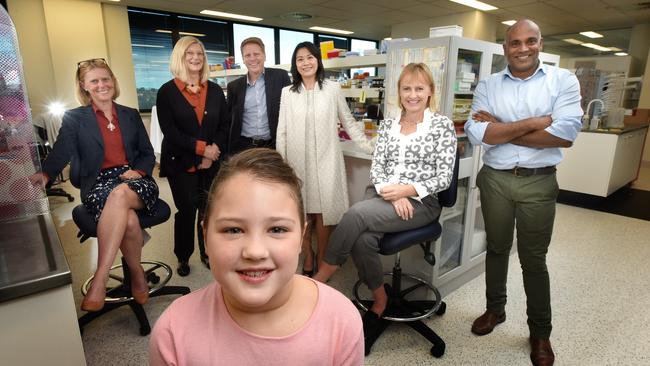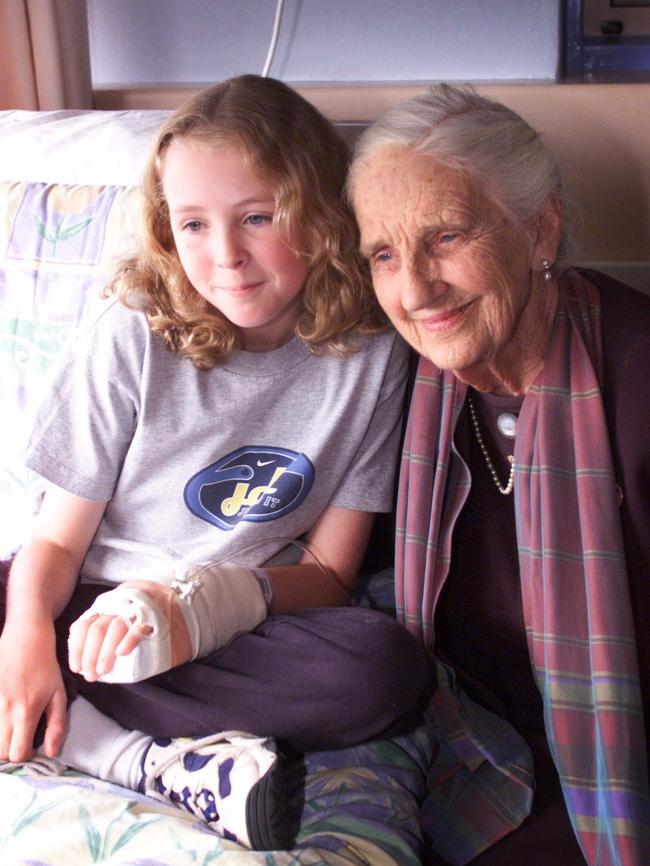Murdoch Childrens Research Institute celebrates 30 years of saving our children
FEATURE: FOR 30 years the brilliant minds of the Murdoch Childrens Research Institute have been at the forefront of the charge to beat childhood’s biggest killers.
VIC News
Don't miss out on the headlines from VIC News. Followed categories will be added to My News.
SURROUNDED by the very families who need their talents every day, the scientists at the Murdoch Childrens Research Institute are focused on the most pressing real-world problems.
Deliberately located within the Royal Children’s Hospital rather than among university buildings or surrounded by other research centres, the world-leading MCRI is dedicated to solving the problems faced by patients.
Under the celebratory title of Brilliant Minds, the MCRI this year marks 30 years of life-changing discoveries that have made a huge difference around the world.

Its director, Professor Kathryn North, has labelled the institute’s 2000 researchers the “rock stars of research” — it’s easy to see why.
The MCRI is ranked in the top five paediatric research centres in the world, based on the impact its findings have in shaping health policy, the citation of its research and the spread of those adopting its findings.
It is also in the top 10 medical institutes of any type in Australia, attracting the brightest homegrown and global researchers, including allergy, stem cell and rare disease experts.

“It is the brilliant minds that we have here, people who are passionate and driven by the excitement of discovery, that makes a difference,” Prof North said.
“We identify the areas where we can lead internationally. Across all the different areas within the institute we have world leaders in their field.
“The diversity of our work is really a response to the needs we see as the most important to children and their families.
“It is so amazing to walk into the this place and be surrounded by the children coming to the hospital. We are basically immersed, and that is why our research is so focused and directed to improving outcomes.”
Initially founded as the Murdoch Institute for Birth Defects in 1986, it immediately made its mark internationally with technology to screen genes for mutations, before again making world headlines by answering the question of why genes makes us male or female.
With increasing wards of young children suffering severe gastroenteritis, its scientists turned their attention to the most pressing issue and developed a rotavirus vaccine.
Helping overcome some of the biggest paediatric killers as well as conditions impacting on smaller groups, Prof North said the breadth of issues tackled by the MCRI had grown to cover all aspects of research and health policy.
“One of the unique aspects of MCRI is that we are so embedded with a focus on children due to our close partnership with the Royal Children’s, all the questions that we pursue with our research are based on problems arising in clinical practice,” Prof North said. “We focus on problems until we solve them.”
The MCRI’s 30-year anniversary celebrations start of Wednesday and continue through the year.


